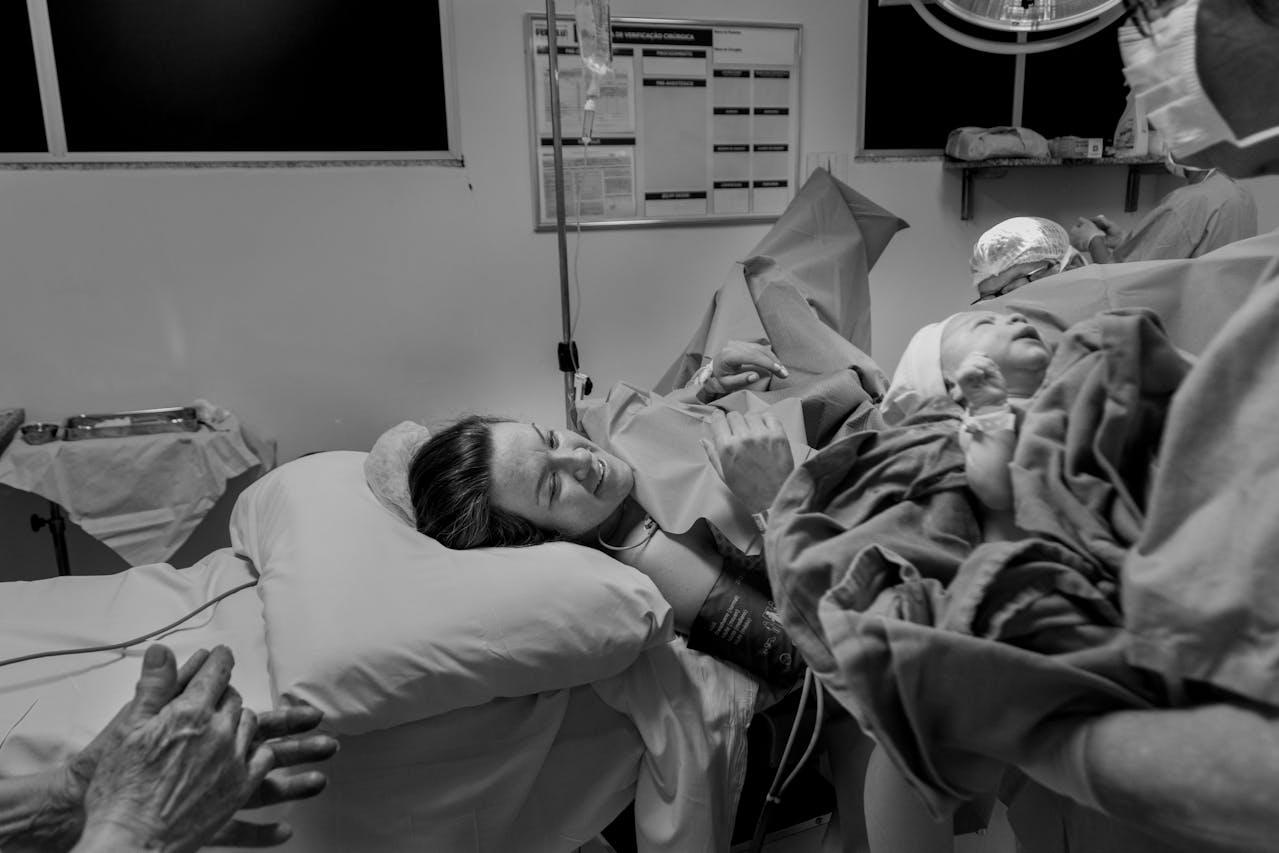Home
Pregnancy & Breastfeeding Tips for New Moms: Preconception, Pumping & Parenting Support
Postpartum Recovery: Healing Your Body After Childbirth

Postpartum Recovery: Healing Your Body After Childbirth
Childbirth is not fun either physically or emotionally, but as far as the physical changes in your body, they can be the roughest. The first six weeks after childbirth is officially called the postpartum period, and postpartum recovery can indeed be tough. Nevertheless, knowing what to expect and what to do to ease the process can make things a lot easier on you, and that’s what this article is here to do.
Not All Experiences are the Same
Just as there are many different types of births, there are also different types of recovery from those births. That being said, there are a few things to remember that apply to most women recovering from childbirth. These include the following:
- If you’ve had a vaginal birth, it usually takes three weeks for the perineum to heal if you didn’t tear to six weeks or longer if you tore or had an episiotomy
- If you’ve had a C-section, it can take four to six weeks to feel like you’re “normal” again
- Bleeding is normal and is heaviest in the first three to ten days; afterwards, it will taper off and will likely cease at around six weeks after the birth
- As soon as your doctor gives the approval, you should start participating in some light exercise, even if it’s just walking, which helps speed up the healing process
If you’ve had an episiotomy or you tore during the delivery, you owe it to yourself to buy yourself a blow-up “donut” or even an extra-soft pillow and place it under you every time you sit down. Taking sitz baths or warm baths without using soap for 20 minutes at a time several times a day can help a lot. If you had a C-section, taking care of your incision is important and involves cleaning it gently several times a day with soap and water and then drying it completely with a soft towel.
Although rare, some women bleed extensively or experience large clots of blood as well. If this happens, you should consult with your doctor because even though it’s likely normal, it may be something more serious and only your doctor will know for sure.
How You Can Feel Better Physically and Heal More Quickly
In addition to the tips mentioned above, there are other things you can do that make your postpartum care a little easier. One of the most important things is to stay regular, although you should also know that a bit of constipation immediately after childbirth is not that uncommon. If you eat plenty of fiber-rich foods and drink a lot of water, you should be able to have a bowel movement soon after childbirth. If you don’t, ask your doctor about a mild stool softener.
You should also never strain when you’re on the toilet. Your first BM will happen soon enough, and straining can cause more pain and slower healing for your episiotomy or C-section incision. Eat four to six smaller meals a day and keep moving in order to get regular and to avoid hemorrhoids, which can be especially painful after childbirth.
If you’re experiencing headaches, muscle soreness, or any other type of pain directly related to the birth, check with your doctor about what you can take to ease the pain. Normally, you’ll only be allowed to take either ibuprofen or acetaminophen and nothing stronger, but these medications can be your best friend in the first six weeks after you give birth.
Various aches and pains also require certain tools that you can get from most drugstores. These include witch hazel pads if you end up with hemorrhoids, a small tub called a sitz bath, heating pads or ice packs, and a plastic squirt bottle to clean the perineal area before and after you go to the bathroom to help the area heal faster.
Paying Attention to Both Physical and Emotional Stress
Of course, healing after childbirth includes both physical pain and sometimes a little postpartum depression. If you get home and you’re experiencing feelings of sadness or frequent bouts of crying, it usually isn’t a cause for concern. It might be a concern, however, if you are feeling extreme sadness, hopelessness, anxiety, worthlessness, feelings of isolation, or feeling like you may want to harm yourself or your child. If this happens, you need to speak to your doctor right away.
The main reason why the “baby blues” occur is because you’re usually not getting enough sleep and because your hormone levels have taken a sudden drop. They are also due to the stress involved in adjusting to life with your tiny new family member. Roughly one in seven new moms experiences full-blown postpartum depression, but the right treatment can make a huge difference.
In addition to your doctor, there are also organizations specifically devoted to helping women get past their postpartum depression. Keep in mind that you cannot control whether or not you have this type of depression, so it is nothing to be ashamed of because it is not your fault. You should, however, contact your doctor if you are feeling this way.
Conclusion
Childbirth is an amazing experience but it comes with a lot of physical and emotional stress. Fortunately, there are simple steps you can take to make things a little easier in both areas. Resting, eating right, taking certain medications, and taking care of your perineum or your C-section incision can help you feel better sooner rather than later. Also remember to call your doctor immediately if you have any concerns or questions.
Share


